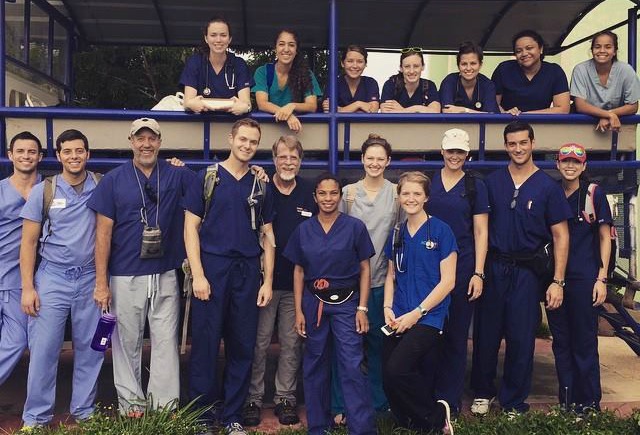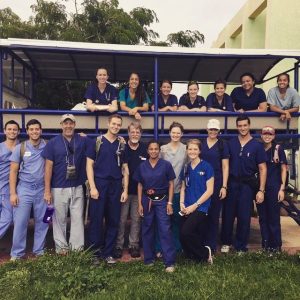REFLECTIONS FROM THE DOMINICAN REPUBLIC
One of my favorite aspects of traveling is reaffirming that despite vast differences in experiences and environments, people have some level of connectedness or relatability simply by being human. The recent IHOP (International Health Organization of Phoenix) trip to the Dominican Republic was my first opportunity to function in a healthcare setting in another country, and I had a sense that the experience would be totally foreign to me. However, I had a few interactions with patients that were more familiar than expected.
On this trip, a team of students and physicians visited and set up clinics in four small communities known as bateyes in the vicinity of the town San Pedro de Macorís. While we ran the clinics as efficiently as possible, it was certainly busy, and people had to wait to be seen, sometimes for a while, sometimes with young children, and almost always in poorly ventilated areas. Despite these conditions, many of the patients we saw were incredibly grateful for the time and resources provided. However, there were also patients who were apathetic or unabashedly irritated either due to the wait or, more often, because their evaluation did not warrant treatment with antibiotics. For anyone who has worked in a healthcare setting, this probably sounds familiar. I had many uncertainties about what to expect on this trip, but learning that patient expectations and reactions could be so similar to those at home was quite surprising.
As we continued to work in the clinics throughout the week, it soon became evident that one could safely bet that his or her next patient would be in the clinic due to “la gripe”. This means “the flu” in Spanish, and its use was so prevalent, despite a wide range of presenting symptoms and systems involved, that the word itself began to seem comically trite. However, upon reflection it is clear that our patients in the Dominican Republic are not the only ones guilty of utilizing vague and overused descriptions. How many times have you heard the phrase “bug” or “cold” to describe a person’s state of illness in the United States? How many times have you used such phrases? It dawned on me that this assertion of being afflicted with “la gripe” was also a subtle form of the practice of self-diagnosis. I understood this in our own culture of WebMD and other such websites, but I did not expect it from a population that likely has infrequent and unreliable access to the internet.
While I did not expect to find myself in situations that echoed healthcare at home, the fact that I did illuminated the universality of having expectations about healthcare and desiring to be in control of one’s own health. This realization may help inspire empathy and compassion in current and future healthcare providers. This experience reminded me that, as a future physician, every patient I see is going to arrive with a different set of preconceptions, worries, or expectations. It will be my responsibility to be aware of this in order to communicate effectively with patients and provide them with the best care possible.
Ashley Jones is entering her second year of medical school at The University of Arizona College of Medicine – Phoenix. She plans to enter a primary care field after graduation and hopes to provide medical care in developing areas throughout her career.


